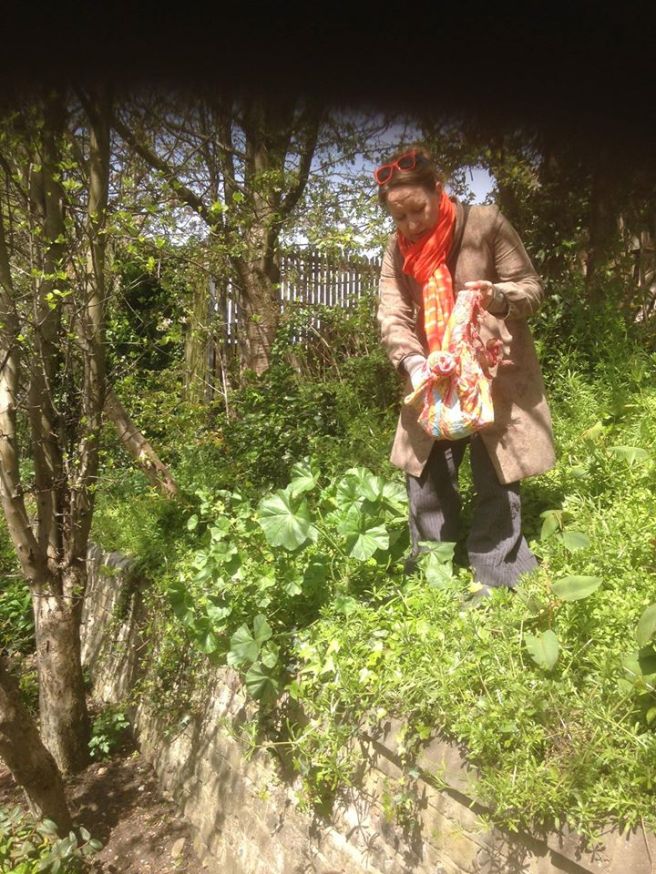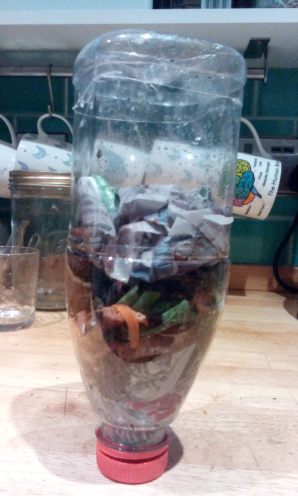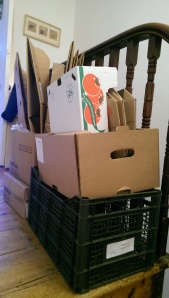I went yesterday to the usual little bit of damp woodland I visit once or twice a year to pick a little bit of wild garlic. I make pesto out of it, maybe a little risotto : its a nice seasonal flavour that you can only buy as far as I know from farmer’s markets and box schemes, which are pretty small scale.
Usually in this season, its a beautiful site : the winding river bed, sunshine dappling through the trees, bluebells up on the banks where its drier, and the starry flowers of the garlic plant waving above a sea of rich green leaves.
This year all I saw was a grubby looking swathe of tiny new seeded leaves where the recent rain had splashed up from the bare earth, and bunch after bunch of cut off stalks where someone had clear felled an entire patch of roughly 3 square metres.
I am all for a little forage here and there, but in that quantity, and taking all the flowers as well, so the plant can’t self seed : that looks to me like its been taken for sale to restaurants, who will buy without asking too many questions.
Much as I like wild garlic, a large part of the pleasure is the walk : the being in nature, the effort involved, the time is takes to pick it making sure not to take too many leaves from one plant, avoiding ones with bird poo, leaving the flowers so the plant can self seed. I feel proud to see at the end that my little forage leaves no impact on either the beauty or the survivability of the resource. I feel I have respected both nature, and the people who might visit this place after me : It’s like the antithesis of the supermarket where you can have everything from everywhere all the time for cheaps.
I don’t think people should necessarily be prosecuted, like that Lithuanian woman in the news last week, that was caught with three carrier bags full of foraged mushrooms, ( Three full bags! That’s either really greedy, or to sell) but I do think that people in a city the size of London need to be educated, in how to gather and enjoy wild food without treating it like supermarket sweep.







